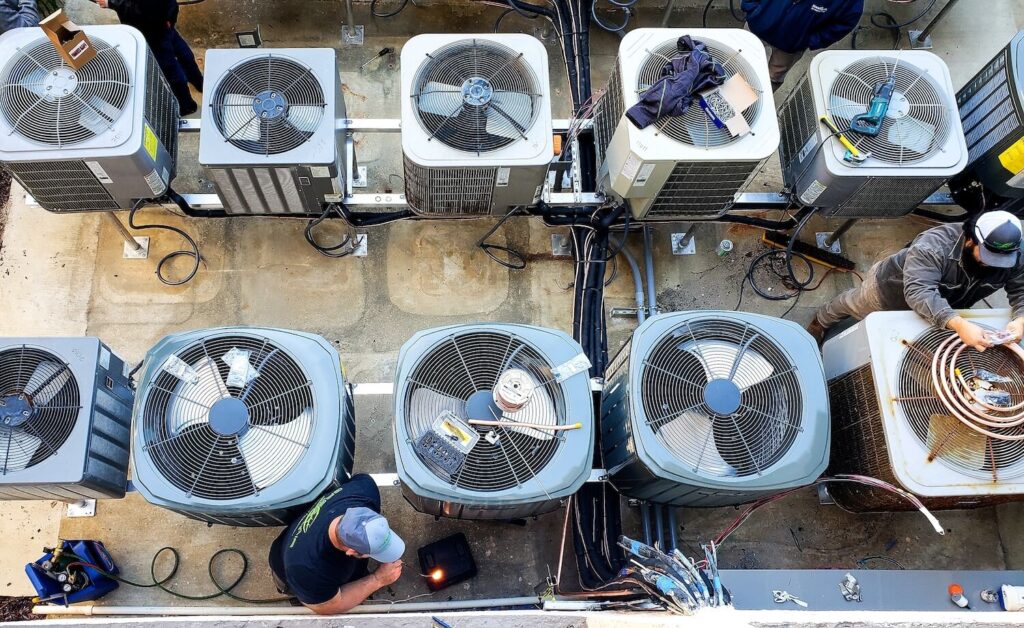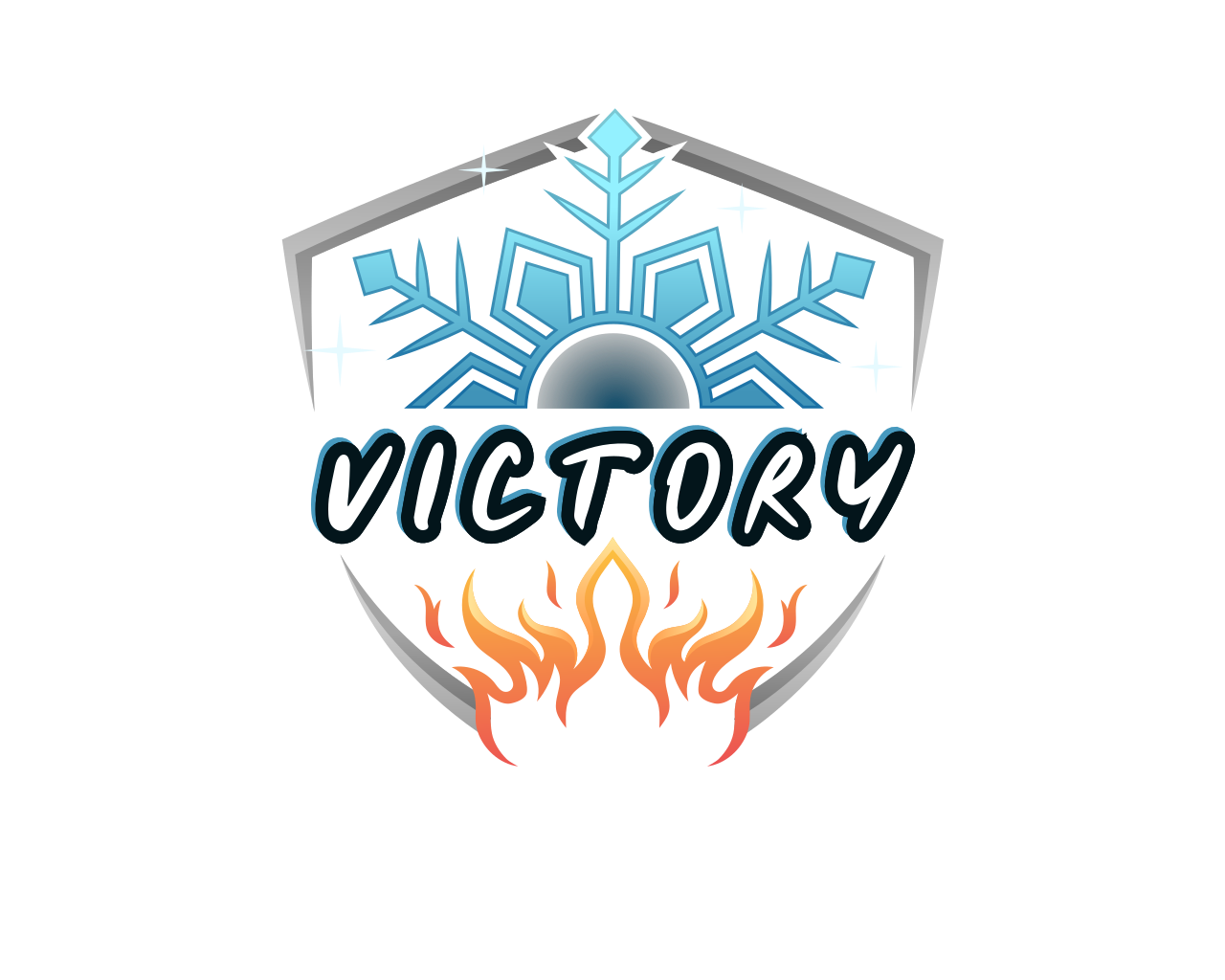
Your HVAC system is one of the most important components of your home, keeping you warm in the winter and cool in the summer. But like any mechanical system, it’s prone to wear and tear over time. Minor issues can quickly escalate into costly repairs or complete system failures if left unaddressed.
From clogged filters and refrigerant leaks to electrical malfunctions and thermostat failures, HVAC problems can lead to poor efficiency, higher energy bills, and uncomfortable indoor temperatures. Understanding these common issues can help you recognize early warning signs and take preventive measures to keep your system running smoothly.
In this guide, we’ll break down the most frequent HVAC problems, their causes, and practical steps to avoid them. At the end, we’ll also discuss why professional HVAC services—such as installation, repairs, replacements, and maintenance—are essential for long-term system reliability.
1. Dirty or Clogged Air Filters
One of the simplest yet most common HVAC problems is a dirty air filter. When air filters become clogged with dust, dirt, pet hair, and other debris, they restrict airflow, forcing your HVAC system to work harder.
Signs of a Dirty Air Filter:
- Reduced airflow from vents
- Increased energy bills due to higher system workload
- Uneven heating or cooling in different rooms
- Excessive dust accumulation around vents and furniture
How to Prevent This Problem:
- Check your air filters once a month and replace them every 1-3 months.
- If you have pets or suffer from allergies, use high-efficiency air filters (HEPA filters).
- Schedule regular inspections to ensure your ductwork isn’t clogged with dust buildup.
2. Refrigerant Leaks
Your air conditioner or heat pump relies on refrigerant to cool the air. A refrigerant leak not only affects system performance but can also lead to environmental hazards.
Signs of a Refrigerant Leak:
- Warm air coming from vents when cooling is on
- Hissing or bubbling sounds near the AC unit
- Ice forming on evaporator coils
- Increased humidity inside the home
How to Prevent This Problem:
- Have your HVAC system inspected annually for leaks.
- If you notice ice buildup on your coils, turn off the system and contact a professional immediately.
- Never attempt to “top off” refrigerant yourself—leaks must be sealed before adding more coolant.
3. Thermostat Malfunctions
A faulty thermostat can cause temperature inconsistencies and make it seem like your HVAC system is failing when the issue is actually just poor thermostat operation.
Signs of a Faulty Thermostat:
- The system won’t turn on or off at the set temperature
- Rapid temperature swings inside your home
- Inaccurate thermostat readings
- System short-cycling (turning on and off too frequently)
How to Prevent This Problem:
- Replace thermostat batteries annually (if applicable).
- Upgrade to a programmable or smart thermostat for better accuracy and energy efficiency.
- Ensure your thermostat is installed away from heat sources like direct sunlight or appliances.
4. Frozen Evaporator Coils
Your air conditioner’s evaporator coil absorbs heat from the air, but if it becomes frozen, it won’t be able to function properly.
Causes of Frozen Evaporator Coils:
- Dirty air filters restricting airflow
- Low refrigerant levels due to a leak
- Blocked vents preventing air circulation
- Malfunctioning blower fan
Signs of Frozen Coils:
- Ice buildup on the indoor unit or refrigerant lines
- Warm air blowing from vents
- Unusual hissing noises
How to Prevent This Problem:
- Change air filters regularly to maintain proper airflow.
- Keep all vents open and unblocked to allow air circulation.
- Schedule seasonal maintenance checks to inspect refrigerant levels and airflow issues.
5. Electrical Issues and Capacitor Failures
HVAC systems rely on capacitors and relays to start and run efficiently. Electrical issues can lead to short-circuiting, blown fuses, or complete system failure.
Signs of Electrical Problems:
- The system won’t turn on at all
- Clicking or buzzing noises from the unit
- Intermittent power failures or sudden shutdowns
- A burning smell coming from the HVAC unit
How to Prevent This Problem:
- Have a professional inspect and tighten electrical connections once a year.
- If your system frequently trips the breaker, call an HVAC technician immediately.
- Ensure your unit is on a dedicated circuit to prevent power overloads.
6. Clogged Condensate Drain Lines
Air conditioners remove humidity from the air, but over time, drain lines can become clogged with dirt, algae, and mold, leading to leaks and water damage.
Signs of a Clogged Condensate Drain:
- Water pooling around the indoor unit
- A musty smell from vents
- The AC shutting down unexpectedly
How to Prevent This Problem:
- Clean the drain line with a vinegar solution every few months.
- Install a float switch to shut the system off automatically if a clog occurs.
- Schedule routine HVAC maintenance to inspect and clear drain lines.
7. Uneven Heating or Cooling
If some rooms in your home are significantly warmer or cooler than others, your HVAC system may not be distributing air properly.
Causes of Uneven Temperatures:
- Poorly sized HVAC system
- Blocked or leaky air ducts
- Improper thermostat placement
How to Prevent This Problem:
- Ensure ductwork is properly sealed and insulated.
- Upgrade to a zoned HVAC system for better control over different areas of your home.
- Use ceiling fans to help circulate air more evenly.
8. HVAC System Short Cycling
Short cycling occurs when your system turns on and off too frequently, which can lead to excessive wear and tear.
Causes of Short Cycling:
- Incorrect system sizing
- Clogged air filters
- Malfunctioning thermostat
How to Prevent This Problem:
- Ensure your HVAC system is properly sized for your home.
- Keep air filters clean to maintain proper airflow.
- Have a technician inspect for faulty sensors or overheating issues.
When to Call a Professional HVAC Contractor
While some minor HVAC maintenance tasks, like replacing air filters, can be handled by homeowners, most system issues require the expertise of a trained professional. HVAC systems are complex, involving electrical components, refrigerants, and intricate mechanical parts that need proper diagnosis and repair. Attempting DIY fixes on major issues can lead to safety hazards, costly mistakes, and even void manufacturer warranties.
Signs You Need a Professional HVAC Contractor:
- Unusual Noises or Odors: Rattling, buzzing, or burning smells indicate underlying mechanical or electrical issues.
- Frequent Cycling or Shutdowns: If your system turns on and off too often or won’t start at all, a professional inspection is necessary.
- Weak Airflow or Uneven Temperatures: A technician can identify and resolve ductwork problems, thermostat malfunctions, or system inefficiencies.
- Refrigerant Leaks or Ice Buildup: Handling refrigerant requires specialized training and certification for safe and proper repairs.
- Spike in Energy Bills: An HVAC professional can assess inefficiencies and recommend repairs or upgrades to reduce energy consumption.
Key HVAC Services Professionals Provide:
- Installation & Replacement: Ensuring your system is properly sized and installed for maximum efficiency.
- Repairs & Troubleshooting: Diagnosing and fixing issues before they escalate into major failures.
- Preventative Maintenance: Regular tune-ups to keep your HVAC system operating efficiently and extend its lifespan.
- Ductwork Inspections & Sealing: Improving airflow and eliminating leaks that impact system performance.
By partnering with a professional HVAC contractor, you ensure your system runs efficiently, safely, and reliably. If you notice any performance issues, don’t wait—schedule an inspection with a trusted expert to keep your home or business comfortable year-round.
Final Thoughts
HVAC problems can be frustrating and costly if left unaddressed. By recognizing common issues—such as clogged filters, refrigerant leaks, thermostat malfunctions, and airflow restrictions—you can take proactive steps to keep your system running smoothly. Regular maintenance, like changing filters and clearing drain lines, can help prevent many of these problems, but some HVAC repairs require professional knowledge.
When your HVAC system isn’t performing as it should, don’t ignore the warning signs. A professional HVAC contractor can provide the expertise needed to diagnose and resolve issues efficiently, ensuring your home or business stays comfortable year-round. Whether it’s routine maintenance, repairs, or a complete system replacement, working with a trusted professional helps protect your investment, improves energy efficiency, and extends the lifespan of your HVAC system.
If you’re experiencing HVAC issues or want to prevent future breakdowns, now is the time to schedule a professional inspection. A well-maintained HVAC system doesn’t just provide comfort—it saves you money, improves indoor air quality, and ensures peace of mind.
